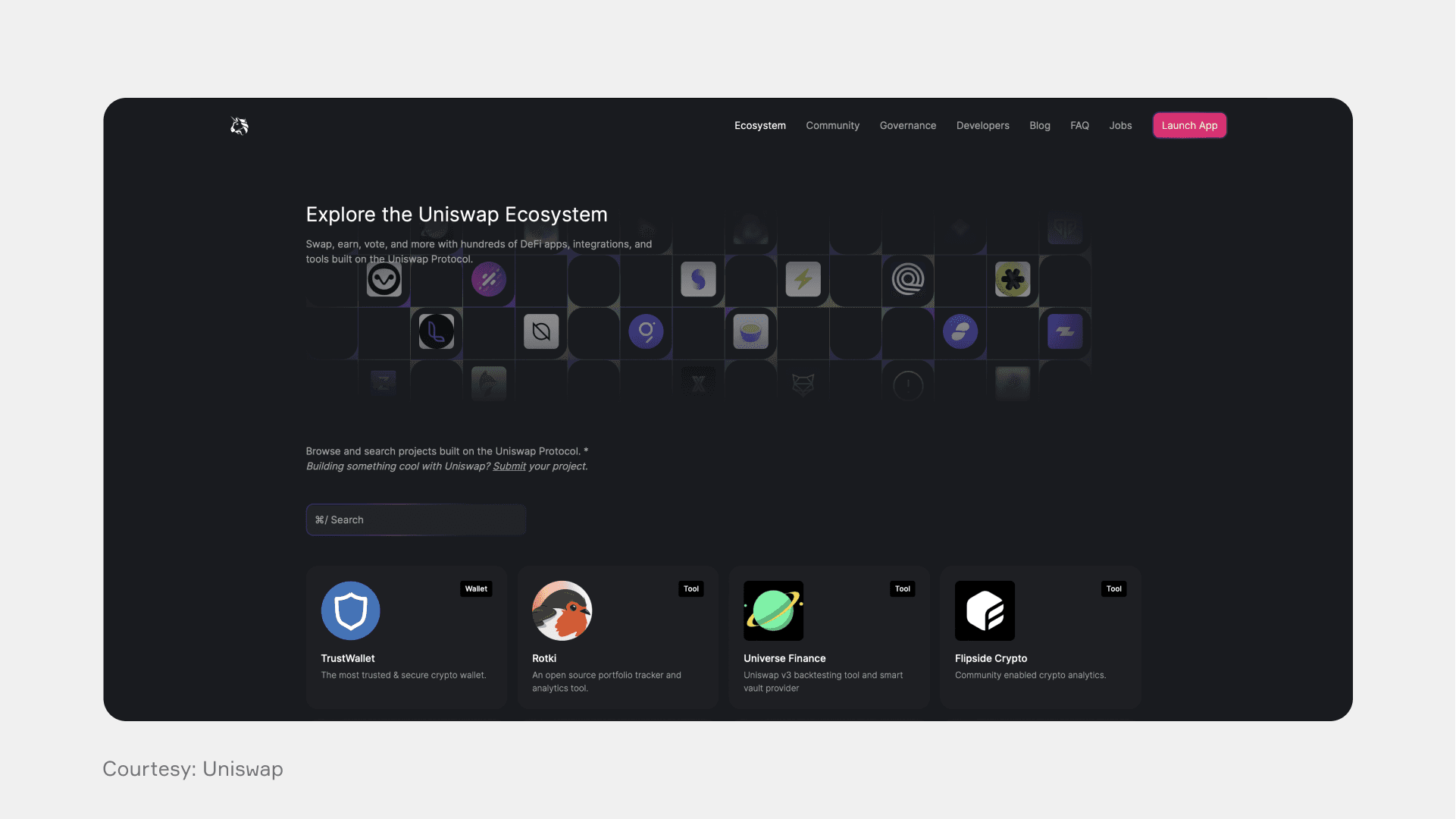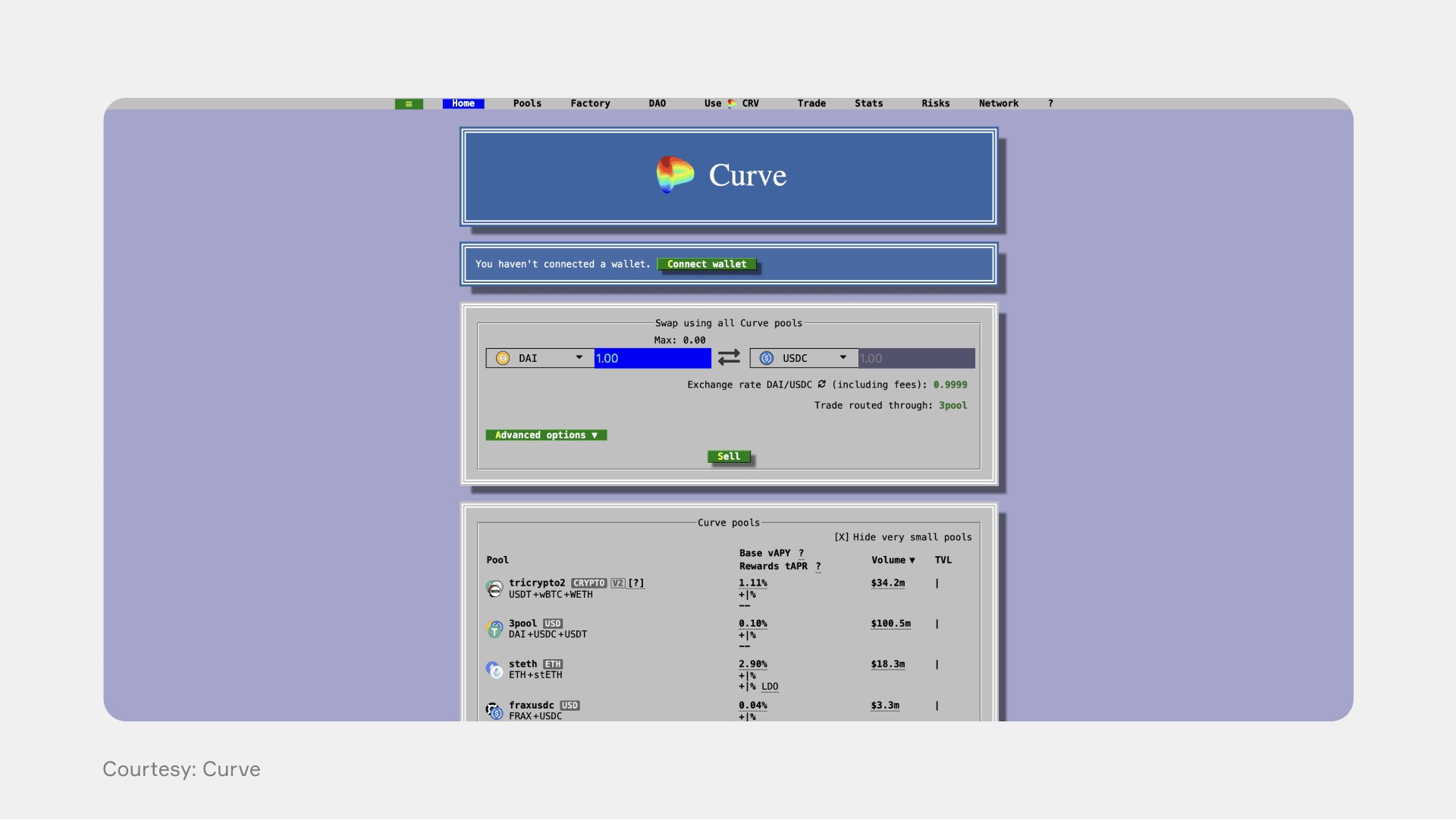The rise in interest for cryptocurrencies has brought many new users to this market. As a result, there are now hundreds of crypto exchanges that connect buyers and sellers of digital assets. In many ways, these platforms work like the stock market but there are many important differences to keep in mind, especially when choosing between centralized and decentralized exchanges. Recently, we wrote about the best steps to follow when choosing a crypto exchange, and today we will be diving deeper into the inner workings of decentralized exchanges.
What Is A Cryptocurrency Exchange?
Simply put, a cryptocurrency exchange is a platform where users can trade their digital assets, including cryptocurrencies, and exchange them for conventional fiat money (or other digital tokens).
Normally, these exchanges act as the intermediary between buyers and sellers. But that is not always the case, as there are platforms run in a decentralized format - decentralized exchanges.
The best cryptocurrency exchanges are those that will let you easily buy and sell crypto while charging low fees and offering strong security features.
DeFi: The Foundation of Decentralized Exchanges
Before understanding how a decentralized exchange (DEX) works, it’s important to understand the idea behind decentralized finance.
DeFi is a type of financial technology that enables transactions via smart contracts, thus cutting the need for a middleman or centralized institution like a traditional bank or payment services platform.
This way, users can access cheaper, quicker and more efficient financial tools.
Decentralized finance holds the promise of disrupting the traditional finance system under the argument that centralized systems hold an unfair monopoly over users, letting them have little control over their financial assets.

What Is a Decentralized Exchange
A decentralized exchange is a cryptocurrency exchange where transactions take place without any intermediary or third party being involved. Hence, the concept of decentralization is key. These platforms are focused on peer-to-peer trades and are entirely run through automated algorithms. You might also see them described as self-executing smart contracts, referring to pieces of code written on top of blockchains like Ethereum and that are triggered when predetermined conditions are met.
This system is very different from the conventional approach to finance where an intermediary is responsible for managing transactions between buyers and sellers.
As such, a DEX allows people to trade directly with another person, from wallet to wallet. Another benefit of using a decentralized exchange is that you, as the user, retain control over your funds stored or traded, making it a more secure option when compared to a centralized exchange (CEX).
Given that they provide more security and privacy than their centralized counterparts, interest in DEXs has seen a significant increase in recent years.
How Do Decentralized Exchanges Work
Without intermediaries, decentralized exchanges work under a non-custodial model. In other words, users have wallets where they store their crypto assets and these are accessed through keys that only they have access to. As such, users are entirely responsible for managing their assets.
In that sense, we can say a DEX is self-governed, as users are themselves responsible for providing liquidity for transactions, trading directly with other participants and, as we discussed, managing their money. At no point will there ever be a third party involved in transactions.
The majority of decentralized exchanges will offer standard services such as buying, selling, lending and earning an interest on digital assets.
DEXs work through smart contracts, that is, self-executing computer protocols that ensure the reliability of a transaction.
There are three main types of decentralized exchanges you should know about:
Automated Market Makers
An automated market maker is a digital tool or protocol used to facilitate trustless crypto transactions, that is, without a third-party.
This is achieved by using a liquidity pool instead of relying on a traditional market of buyers and sellers.
Moreover, with this model, users provide liquidity to a pool of crypto and assets are priced by specialized algorithms. The mathematical formula may vary depending on the protocol.
All trades are executed via smart contracts.
Order Book DEXs
An order book is essentially a system that matches buy and sell orders in real-time so that trades can be executed between participants of the exchange.
In fact, this is a core component of all electronic exchanges, helping determine robustness and efficiency. Typically, this mechanism contains information about the trading activity in an exchange, including volume, price, expiry date and whether the user is trying to buy or sell an asset.
Order book DEXs have two types: on-chain order books and off-chain order books. And while they generally deal with the same pool of data, their layout tends to vary from exchange to exchange.
In a decentralized exchange where all is being done on-chain, this means that all orders are recorded on the blockchain. Naturally, this brings great transparency to the table but it also requires that every node on the network records an order permanently which results in a lengthier process - as miners have to keep adding messages to the blockchain.
Off-chain order books, on the other hand, allow for data to be stored elsewhere. Under this model, users trade on peer-to-peer order books with the trading activity taking place fully outside of the blockchain to reduce gas costs and increase speeds. Trade settlements are the only instance where settlements happen on-chain.
DEX Aggregators
Despite its many benefits - as we will see in just a moment -, decentralized exchanges face a challenge when it comes to enabling liquidity for smaller tokens and pricing. This is a problem when entering and exiting larger positions without substantial slippage.
This is where DEX aggregators step in. To put it simply, you can think of them as financial protocols that allow crypto traders to use one dashboard to access multiple trading pools. Think of it like using a dedicated search engine when you want to book a flight and you’d like to compare multiple fares at the same time to choose the one that better fits your needs.
In crypto, users are also looking for the best trading rates across a wide number of sources and DEX aggregators act as a search engine.
They’re pretty simple to use: type the crypto trading pair you’d like to convert and the liquidity aggregator will show you the best possible price across a number of platforms where you can execute your order.
Some of the most popular aggregators include ParaSwap, 1inch Exchange, Matcha and Dex.ag

Main Features of a Decentralized Exchange
Unlike centralized exchanges, DEXs won’t allow you to exchange between crypto and fiat as trading takes place between currency tokens only.
Prices are typically established through algorithms and liquidity pools are used to enable trades. In other words, it's down to the members of the exchange to provide the liquidity needed for it to function, and in return they receive a percentage of the transaction fees.
With centralized exchanges transactions are recorded on an internal database, whereas with a DEX all transactions are settled directly on the blockchain. DEXs are usually built on open-source code, which is a benefit in terms of ensuring transparency as everyone on the exchange can see exactly how transactions are taking place.
On the other hand, these platforms also uphold high anonymity standards as there are little rules and checks surrounding DEXs. Essentially, they are permissionless and trustless, allowing anyone with access to a cryptocurrency wallet and funds to use them.
They are also less risky when compared to other types of crypto exchanges as, by being non-custodial, assets are very hard to be seized or put at risk in any other way.
This framework also reduces the risk of price manipulation, hacking and thefts since no assets are ever under the exchange’s custody.
Benefits of Using Decentralized Exchanges
While the protocols behind DEXs are still being experimented with and technology continues seeing great evolution, there are several advantages to using these platforms:
Greater Control Over Crypto Assets
Given that trades take place either in a wallet-to-wallet format or via automated market makers, traders retain full control over their cryptocurrencies, which also enables greater flexibility when managing them.
Financial Incentives
As we’ve discussed earlier, DEX participants are rewarded for providing liquidity to an exchange, enabling passive income opportunities for all users.
Lower Trading Fees
A DEX will typically charge lower transaction fees when compared to other crypto exchanges. However, this will always depend on the decentralized exchange itself and the network upon which it operates.
Wide Range of Available Tokens
In theory, any asset can be traded on a DEX so long as they have liquidity. This is particularly beneficial when it comes to trading smaller or newer coins, providing also an added opportunity for investors to jump in at the early stages of a cryptocurrency project.
Open and Permissionless
DEX protocols and its smart contracts can be accessed by anyone, meaning that there aren't any barriers to the types of participants who can take part in these exchanges. On the other hand, anyone can build a new blockchain-based application based on this data without having to ask for permission for it.
ID Checks
There aren’t KYC procedures and lengthy identity checks that users have to go through when signing up to a DEX. As such, decentralized exchanges don't not retain any type of customer data, ensuring their full anonymity.

Drawbacks of Decentralized Exchanges: Risks and Considerations
DEXs are democratizing access to crypto markets and allowing participants to trade in a secure and transparent ecosystem. However, these platforms also come with their own risks:
Liquidity
Decentralized crypto exchanges are becoming increasingly popular but not all have healthy liquidity conditions. This can lead to a poor experience and slippage concerns. It’s also important to note that if a trading pair is particularly volatile, liquidity providers may suffer from temporary losses.
Volatility
Market swings can happen no matter the crypto exchange you choose. However, given the wide variety of coins featured on a DEX, including so-called ‘shit coins’, it can lead to extreme volatility conditions.
Smart Contract Safety
Blockchains are known for being highly secure platforms for engaging in financial transactions. However, the truth is that a crypto exchange will only be as secure and reliable as the smart contracts it uses since there isn’t a central authority overseeing its functioning. A smart contract poorly coded opens the door for it to be exploited, leaving users exposed to potential losses.
Scams
More commonly called “rug pulls”, scams can occur when crypto founders or developers release a project and gather a large community around it, only to run away with the profits and essentially making tokens worthless. Given the lack of scrutiny surrounding a decentralized exchange, including vetting and coin listings, scams are more likely to unfold in such platforms.
Loss of Keys
Losing the private keys to your wallet will mean losing access to your entire crypto portfolio. As a decentralized platform, users won’t be able to reach out for help in recovering access to their wallet, cancel transactions, claim refunds or have customer support address any other issues.
How To Start Using a Decentralized Exchange
Now that you know how a decentralized exchange works, it’s time to get started with trading crypto in a DEX.
The first step is to access the website of a reputable decentralized exchange such as PancakeSwap, Curve or UniSwap and connect your crypto wallet. Make sure that you’re using a hot wallet like Metamask.
Since DEXs don’t deal with fiat money, you will have to load your wallet with some cryptocurrency, which you can easily purchase through a top crypto exchange. Binance, Coinbase and Crypto.com are some of the top platforms you might want to consider using. Once you own cryptocurrencies, log into your DEX of choice and start using the services on offer.
Yes, as simple as that.
Bottom Line
Decentralized exchanges are fast becoming a cornerstone of the crypto ecosystem, allowing users to bypass intermediaries and trade assets directly between themselves. This peer-to-peer model offers a wide range of benefits and democratizes access to cryptocurrencies without the regulatory and scrutiny hurdles faced by centralized exchanges.
However, DEXs still face a series of challenges that haven’t made it a top choice for crypto investors, hampering broad institutional support and adoption.
That said, with continual innovations bringing the blockchain ecosystem forward, DEXs are expected to play a central role and offer greater scalability, security, transparency and use cases.




